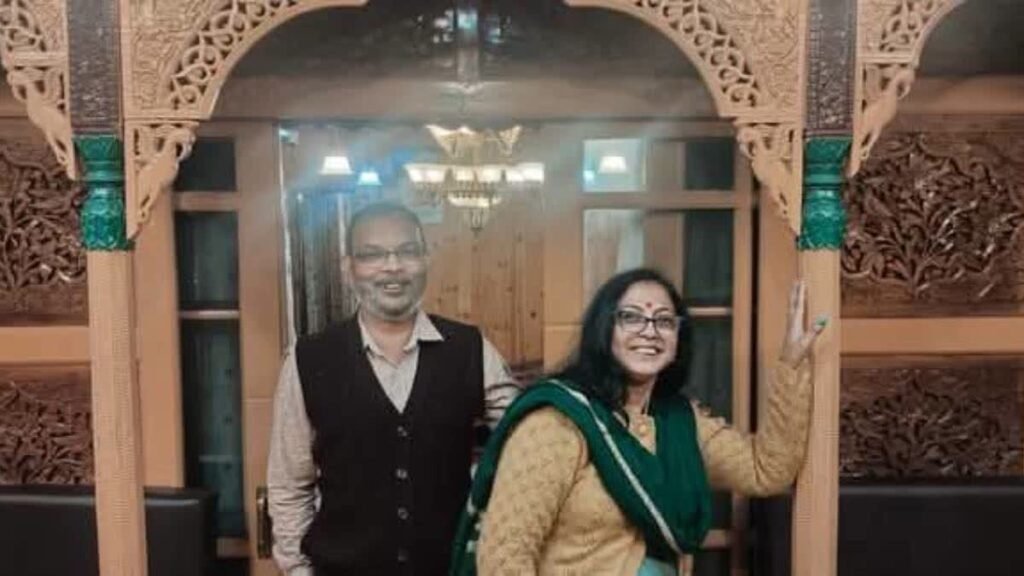On April 22, 2025, the peaceful ambiance of Baisaran meadow near Pahalgam in Jammu and Kashmir was shattered by a deadly act of violence. In what is now being widely reported as the Pahalgam terror attack, militants opened fire on a group of tourists, leaving behind scenes of devastation and despair. Among the survivors was Debashish Bhattacharjee, a Hindu professor from Assam, whose extraordinary presence of mind helped him survive in the most unexpected way — by reciting the Kalima.
Professor Bhattacharjee, head of the Bengali department at Assam University in Silchar, was on a vacation with his wife and son. The scenic beauty of Kashmir had long drawn the family, but their dream trip turned into a living nightmare during the Pahalgam terror attack.

Chaos Unfolds in Paradise
As the family explored the lush Baisaran meadow, they heard gunshots ringing out. At first, they mistook it for forest officials dealing with wildlife. But soon, reality hit hard — tourists were falling to the ground, victims of an unprovoked attack. Panic spread like wildfire.
The professor, along with his family, took cover behind a tree. Amid the chaos, a militant approached him, weapon raised. It was at this moment that he noticed others around him reciting a religious phrase — “La ilaha illallah Muhammadur Rasulullah.”
Survival Through Words of Faith
Without thinking twice, Debashish began murmuring the Kalima. The attacker ordered him to repeat it louder. Shaking with fear, he complied. To his amazement, the militant moved on, sparing his life. This moment, set against the backdrop of the Pahalgam terror attack, is a powerful testament to instinct and the unexpected paths survival can take.
A Harrowing Escape
With the gunfire dying down, the professor and his family made a treacherous climb up the mountain to escape the area. For over two hours, they hiked with a small group of survivors, still in shock. A kind local woman helped arrange transport back to Srinagar, providing them with a lifeline in their time of need.
The Broader Impact of the Pahalgam Terror Attack
The Pahalgam terror attack claimed 28 lives and injured over 20 others. The Resistance Front (TRF), believed to be linked with the banned Lashkar-e-Taiba, claimed responsibility. The group cited opposition to “settlements of non-locals” in Kashmir as their motive.

The attack drew condemnation from across India. Leaders and civil society groups denounced the violence, while questions were raised about tourist safety and security preparedness in the region. The brutal nature of the Pahalgam terror attack left the nation in mourning and sparked urgent calls for action.
Reflections from a Nation in Shock
The emotional toll of the attack has been profound. Kashmir’s tourism industry, already fragile, faces renewed fear and uncertainty. The story of Debashish Bhattacharjee’s survival is being seen not just as a miraculous escape but also as a symbol of how shared humanity can shine through in even the darkest moments.
In the wake of the Pahalgam terror attack, survivors and eyewitnesses have started coming forward with chilling accounts of what transpired. Many recall the attackers targeting tourists without discrimination, with some claiming they were specifically asked about their identities and hometowns.
This has reignited fears among locals and visitors alike, with tourism stakeholders urging authorities to bolster security measures. Civil society in Kashmir has also condemned the violence, emphasizing that such acts do not reflect the will of the people. For many, the attack is a reminder of how peace remains fragile in a region long plagued by unrest.
A Story Beyond Borders and Beliefs
Professor Bhattacharjee’s survival by reciting a prayer from another faith isn’t just a story of instinct — it’s one of unity, empathy, and resilience. His experience during the Pahalgam terror attack offers a unique narrative: that even in the face of violence driven by religious hatred, compassion and presence of mind can bridge seemingly insurmountable divides.
This incident, though horrifying, leaves behind a message of hope — a reminder that faith can mean survival, and humanity can triumph, even in moments of unimaginable fear.
Also Read: Assam CM’s ‘Lungi’ Remark Sparks Political Controversy Ahead of Panchayat Elections












